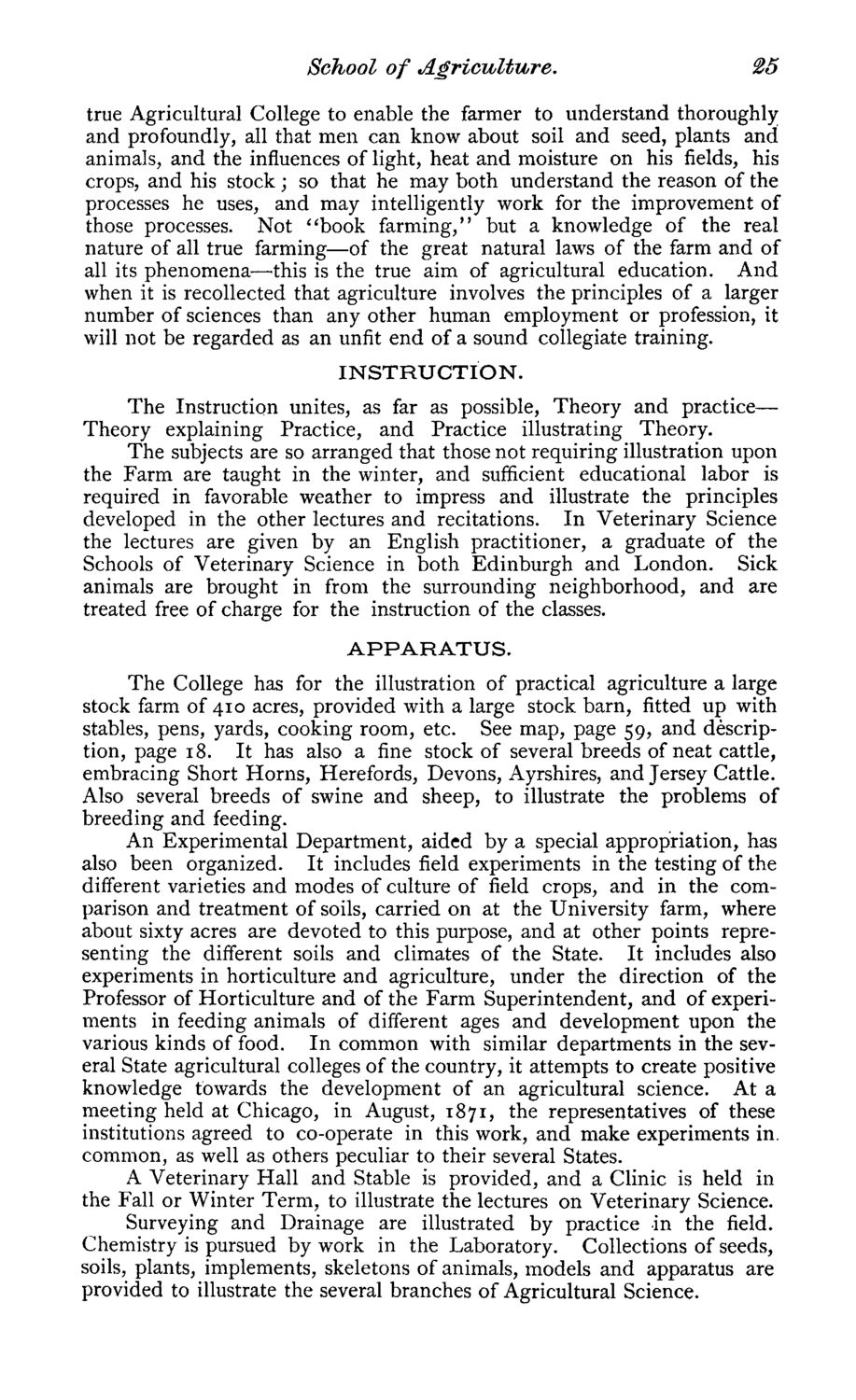| |
| |
Caption: Course Catalog - 1872-1873
This is a reduced-resolution page image for fast online browsing.

EXTRACTED TEXT FROM PAGE:
School of Agriculture. 25 true Agricultural College to enable the farmer to understand thoroughly and profoundly, all that men can know about soil and seed, plants and animals, and the influences of light, heat and moisture on his fields, his crops, and his stock; so that he may both understand the reason of the processes he uses, and may intelligently work for the improvement of those processes. Not "book farming," but a knowledge of the real nature of all true farming—of the great natural laws of the farm and of all its phenomena—-this is the true aim of agricultural education. And when it is recollected that agriculture involves the principles of a larger number of sciences than any other human employment or profession, it will not be regarded as an unfit end of a sound collegiate training. INSTRUCTION. The Instruction unites, as far as possible, Theory and practice— Theory explaining Practice, and Practice illustrating Theory. The subjects are so arranged that those not requiring illustration upon the Farm are taught in the winter, and sufficient educational labor is required in favorable weather to impress and illustrate the principles developed in the other lectures and recitations. In Veterinary Science the lectures are given by an English practitioner, a graduate of the Schools of Veterinary Science in both Edinburgh and London. Sick animals are brought in from the surrounding neighborhood, and are treated free of charge for the instruction of the classes. APPARATUS. The College has for the illustration of practical agriculture a large stock farm of 410 acres, provided with a large stock barn, fitted up with stables, pens, yards, cooking room, etc. See map, page 59, and description, page 18. It has also a fine stock of several breeds of neat cattle, embracing Short Horns, Herefords, Devons, Ayrshires, and Jersey Cattle. Also several breeds of swine and sheep, to illustrate the problems of breeding and feeding. An Experimental Department, aided by a special appropriation, has also been organized. It includes field experiments in the testing of the different varieties and modes of culture of field crops, and in the comparison and treatment of soils, carried on at the University farm, where about sixty acres are devoted to this purpose, and at other points representing the different soils and climates of the State. It includes also experiments in horticulture and agriculture, under the direction of the Professor of Horticulture and of the Farm Superintendent, and of experiments in feeding animals of different ages and development upon the various kinds of food. In common with similar departments in the several State agricultural colleges of the country, it attempts to create positive knowledge towards the development of an agricultural science. At a meeting held at Chicago, in August, 1871, the representatives of these institutions agreed to co-operate in this work, and make experiments in. common, as well as others peculiar to their several States. A Veterinary Hall and Stable is provided, and a Clinic is held in the Fall or Winter Term, to illustrate the lectures on Veterinary Science. Surveying and Drainage are illustrated by practice in the field. Chemistry is pursued by work in the Laboratory. Collections of seeds, soils, plants, implements, skeletons of animals, models and apparatus are provided to illustrate the several branches of Agricultural Science.
| |